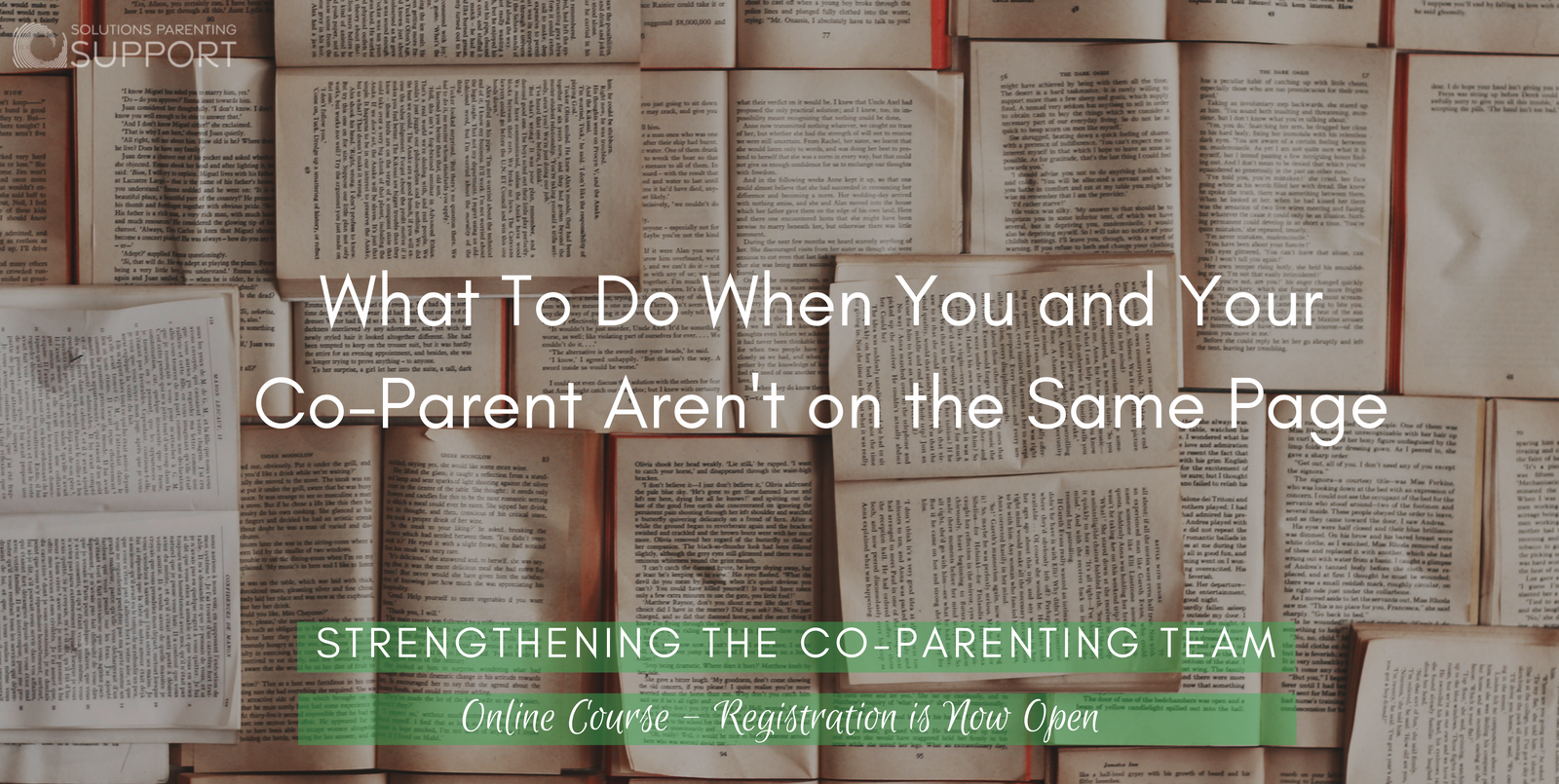|
Does this sound familiar?
“My spouse and I can’t agree on how to parent our struggling child. We end up fighting because it seems like the only way for us to get on the same page is for one of us to completely back down. We both feel too strongly about what’s best, so we won’t let the other parent have their way, yet, we know that the only way to help our child is to be aligned with each other in how to parent and discipline.”
This is a common refrain that we hear in our parent coaching sessions.
As thinking, feeling, opinion-rich people, we are bound to experience some ups and downs in our relationships. We come together, in any kind of partnership, with unique experiences, perspectives and reactions to the the world around us.
You don’t have to be on the exact same page to successfully co-parent.
In co-parenting relationships, especially when a child has been struggling for a while, these differences can either strengthen a family system or break it down.
As parents, you’re not only grieving the loss of the picture that you once had for yourselves as a family, you are now faced with constant worry, and are at a loss for what to do.
Stress increases; the time and emotional capacity for working together decreases; and the child, can further exacerbate the situation by pushing each parent in opposite directions. Being on the same page with your co-parent can help when parenting a struggling child, though it actually is not the “be all end all” of healthy family dynamics.
Here’s How to Thrive Despite Your Differences
When co-parents show that they value each other; listen with genuine interest; slow down long enough to be present; and are open to the idea that the other person might have a valuable different perspective, a family system can thrive. Yes, you read that correctly. A family system can acknowledge each other’s differences and still thrive. This version of family health is not dependent on being on the exact same page, however, it is dependent upon some other factors.
If each parent has the courage to let go of the need to be “right”, differences of opinion can offer the opportunity for learning. This requires mental flexibility, one of the key neurological factors in developing resilience. Resilient co-parents can be on different pages in some ways and their differences can help their families thrive.
When working with many of our clients, we find that there is a lot of confusion about what getting on the same page actually looks like. Struggling families usually think about, being on the same page, in a micro way rather than in a macro way. For example, valuing charity work, as a family, would be a macro version of being on the same page. Dictating that family members must volunteer at the homeless shelter twice a week is the micro version. The micro version leaves little room for flexibility, personal preferences and individuality and can cause family members to become resentful rather than resilient.
If a co-parenting team is “on the same page” about teaching their children responsibility, and they identify that as a shared family value on the macro level, then each individual parent can take a unique approach toward teaching responsibility and still be on the same page.
This isn’t a one-size-fits-all approach
Of course, there are times when it can be more beneficial for a child to have a consistent and predictable approach from the co-parenting team, as the child can feel like he is on more stable ground. For example, if a child is raised in a system where the daily routine for homework is consistent, this becomes a known part of the culture on which the child can depend.
One Key Factor for Success
Because of these nuances, we strongly suggest that all of our clients be on the same page with each other about communicating with each other. We recommend that each parent commit to periodically reviewing, with each other, what is working and what is not working, so that they can develop styles that best fit for the child and family, as a whole.
Let’s Be Clear About What This DOESN’T Look Like
Communicating with each other would not look like either parent undermining each other, in the middle of a parenting moment, by yelling at the other person, giving the silent treatment or forming an alliance with the child that discredits the other.
Schedule It
This would be a commitment to having a healthy discussion, at a designated time, in which, macro values are revisited, differences of opinion in how they are being carried out are listened to, with each parent having an open mind, an open heart and an open discussion.
Sincerely-
Hilary Moses
Parent Coach
Solutions Parenting Support
PS If you’d like to continue to strengthen the relationship that you have with your co-parent, please join me for our upcoming 4-week online course. If you sign up by October 28, you’ll get a bonus one-on-one session with me to discuss your individual situation, set appropriate goals and get personalized support throughout the course.
|

